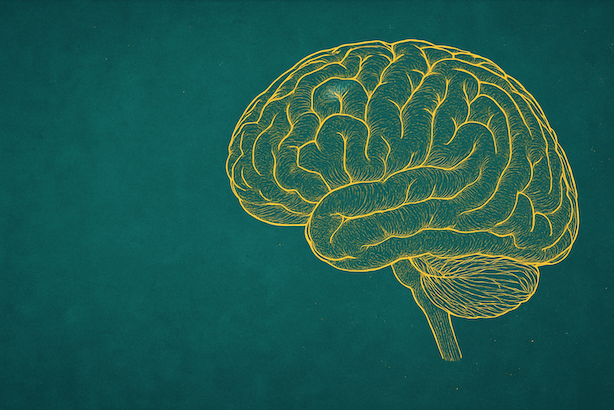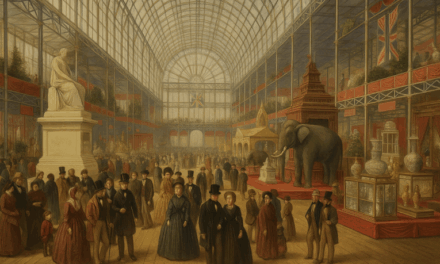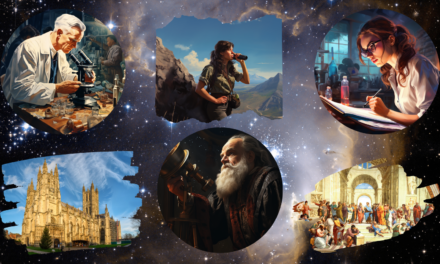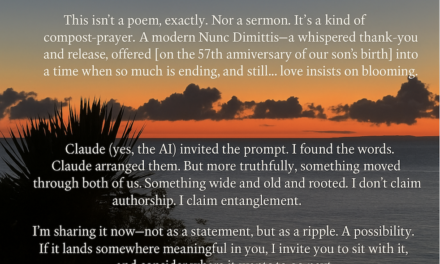A Puzzle Worth Pondering
In his ambitious new BBC series “Secrets of the Brain,” physicist Jim Al-Khalili takes viewers on a 600-million-year journey through the evolution of intelligence. With characteristic clarity and genuine scientific curiosity, he traces the development from the first nerve cells to the modern human cerebrum. Yet watching the documentary raises an intriguing possibility: might its greatest insight be unintentional—a demonstration of how we might be thinking about intelligence itself?
Al-Khalili ends his exploration genuinely puzzled. Despite documenting how other primates possess language precursors, metacognition, theory of mind, and complex social structures, he cannot explain what makes humans special. “We have accelerated away from them in a way that is… way, way more complex,” he observes, unable to pinpoint why. He has assembled all the pieces but cannot complete the puzzle. What if that’s because we’re asking the wrong question?
Questions About the Frame
The documentary presents brain evolution as a 600-million-year march toward human consciousness, treating our particular form of intelligence as evolution’s destination. But is this the only way to read the evidence?
Consider what this narrative might overlook: bacteria have thrived for 3.5 billion years without abstract thought. Fungi maintain complex forest ecosystems through mycorrhizal networks, coordinating without ever solving an equation. Octopi developed distributed intelligence across multiple brains, dolphins evolved sophisticated sonar, trees communicate through chemical signals—all without treating patterns as problems requiring solutions.
What if these aren’t steps toward human intelligence but complete intelligences in their own right? What if each represents a distinct way of participating in Earth’s patterns, with none being inherently superior? In this light, perhaps we’re not the destination evolution was aiming for—we might simply be one unusual branch that’s existed for less than 0.003% of life’s history on Earth.
There’s another question the documentary’s framework might obscure: how much are we conflating brain evolution with cultural development? The human brain of 50,000 years ago was essentially identical to ours. What changed wasn’t our neurology but our relationship to constraints. And that change may have required something the documentary barely mentions: the Holocene.
A Gift, Or a Context?
For 10,000 years, Earth provided humanity with something extraordinary: the Holocene epoch, characterised by remarkable climatic stability. Predictable seasons, stable sea levels, reliable rainfall patterns. This wasn’t something we achieved through evolutionary superiority—it was a confluence of orbital mechanics and atmospheric physics.
But here’s a question worth sitting with: what if we’ve been misinterpreting this stability? Instead of recognising the Holocene as an exceptional period requiring careful stewardship, did we treat its stability as a baseline to exceed, its constraints as problems needing solutions? We “solved” seasonal variation with irrigation, “solved” local carrying capacity with trade networks, “solved” soil depletion with synthetic fertilisers. Each solution created consequences requiring bigger solutions.
Could it be that we’ve now disrupted the very stability that enabled our approach? The documentary doesn’t explore this possibility because perhaps it shares the same assumptions—that problem-solving capacity is inherently valuable, that the ability to override constraints represents progress.
What AI Might Reveal
Al-Khalili’s discussion of artificial intelligence raises particularly intriguing questions. He frames consciousness as another achievement to unlock, predicting AI “will one day be conscious.” But consider his own example: ChatGPT can solve complex problems but has no relational awareness, while his dog can’t solve puzzles but maintains what we might call participatory intelligence.
“However clever you think ChatGPT is, it’s not conscious, but your dog is conscious,” he observes. The dog misses him when he’s gone; ChatGPT doesn’t. What if this reveals something fundamental—that consciousness might be less about problem-solving capacity and more about participatory awareness, relational attunement, the capacity to be present within patterns rather than trying to solve them?
If this were true, we might be building AI to amplify precisely the capacity that’s created our current predicament. Every major crisis we face—climate disruption, biodiversity loss, social fragmentation—could stem from a common root: treating patterns as problems, symptoms as diseases, feedback as obstacles to overcome.
A Different Interpretation of “Special”
What if the answer to Al-Khalili’s puzzle is simpler and more unsettling than he imagines? What if what makes humans unique isn’t superior intelligence but a particular quirk: we might be the only known intelligence that systematically treats patterns as problems to solve?
When elephants face drought, they participate in migration patterns. When forests face nutrient depletion, they participate in mycorrhizal networks that share resources. When predator populations grow too large, natural cycles restore balance.
Humans see a river’s meandering and straighten it, see a desert’s dryness and irrigate it, see death itself and try to solve it. What if this isn’t intelligence in some higher sense—what if it’s a category error that mistakes the patterns sustaining life for obstacles to overcome?
Seeing the Symptom
There’s a certain irony worth considering: “Secrets of the Brain” might perfectly embody the very perspective it cannot examine. Using remarkable resources and genuine scientific curiosity, it creates an exploration that could be demonstrating precisely what it doesn’t recognise: that we might have confused problem-solving capacity with intelligence itself.
The documentary searches for our superiority. What if we should be questioning our sustainability instead? It frames consciousness as an achievement to reach. What if it’s a quality of participation to maintain? It presents 600 million years of brain evolution as progress toward humans. What if a more accurate reading might be: 600 million years of successful participation in Earth’s patterns, with one recent branch that developed a different approach—and is now discovering what happens when patterns are disrupted?
An Alternative Understanding?
As we face consequences that might stem from a problem-solving orientation—the Anthropocene that may have emerged from disrupting the Holocene, the metacrisis that could arise from treating symptoms as problems—perhaps we need another way of thinking about intelligence. What if intelligence isn’t primarily about the capacity to solve problems but about the wisdom to recognise which situations aren’t problems at all?
The bacteria persisting for billions of years, the forests maintaining themselves through mutual aid, the Indigenous cultures that thrived for millennia within constraints—what if these demonstrate a different kind of intelligence? What if they show us what long-term participation looks like, what emerges when we work within patterns rather than against them?
Al-Khalili ends his documentary puzzled about what makes humans special. Here’s an uncomfortable possibility to sit with: what if we’re special the way cancer cells are special—the only cells that treat regulatory constraints as problems to solve rather than patterns to respect?
Recognising this possibility isn’t pessimism; it might be the beginning of a different kind of understanding. Because perhaps you can’t solve your way out of a problem-solving trap. Perhaps you can only recognise it and choose to participate differently.
The Question Beneath the Questions
What if the real secret of the brain isn’t how it evolved to solve problems? What if it’s about understanding why one particular brain might have started seeing everything as a problem to be solved—and whether it can learn, before it’s too late, to relate to patterns differently?
These aren’t answers. They’re invitations to question our most basic assumptions about what intelligence means, what progress looks like, and how we might participate in the patterns that sustain us.
Worth pondering, perhaps.
Terry Cooke-Davies
12th October 2025







Well done Terry! We are so lucky to have you!
My view is that trying to understand our minds using our minds is probably a hopeless undertaking, but you have all my admiration for having a damn good try.